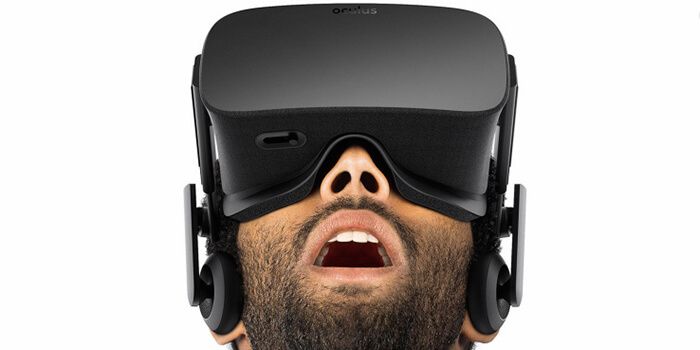News about the highly anticipated Oculus Rift VR headset is hotting up. Just this week, Oculus revealed that the device could be controlled with a pair of funky-looking Oculus Touch devices, allowing the player to interact with in-game objects with added immersion. Not only that, but the company's pre-E3 conference dropped another bombshell: Oculus would be partnering with Microsoft to bring Xbox games to the Oculus Rift.
It was certainly exciting news for video game fans who have toyed with the idea of purchasing the VR headset, opening up the number of games available to play. There was, however, something strange about the partnership with Microsoft: the Xbox giant already has a somewhat similar device in the pipeline. Microsoft announced the HoloLens, an augmented reality device and gaming peripheral, earlier this year.
Obviously, a question had to be asked. Exactly what would the partnership with Oculus over Rift support mean for the future of the augmented reality headset? Thankfully, Phil Spencer has spoken out to confirm how the two separate devices will operate side by side. In an interview with International Business Times, Spencer stated that the Oculus deal would allow Microsoft to focus on a different space for the HoloLens headset.
"This partnership allows us to focus on a space that's different from them with our HoloLens," said Spencer, and continued to state that the augment reality device still "has a lot of things still to be figured out." These different spaces for both devices have yet to be seen, but HoloLens can certainly behave in a different way to the Rift. Microsoft's own headset brings holograms into the user's environment, as opposed to Oculus Rift's shut-off, isolated experience.
Spencer also discussed the nature of the partnership between the two companies, shedding light on why Oculus changed its mind on "never" considering partnering with Microsoft or Sony. According to the Xbox head, the move to "support" Oculus was meant as a way to improve the widespread use of an "innovative" device. Spencer also stated that he has known Oculus VR CEO Brendan Iribe "for years," meaning that the relationship between the two companies was a natural decision to make.
Whilst the notion that both devices can cover separate spaces in the world of VR and augment reality is accurate, there is bound to be some overlap. In particular, Oculus does not just have its eyes set on the gaming market, with CEO Iribe stating that film is also on the table for the device. Meanwhile, Microsoft is clearly thinking about gaming with the HoloLens in some capacity, after bringing former Mass Effect director Casey Hudson into the HoloLens team. With Oculus Rift expected to have a commercial launch in early 2016, we're bound to learn more about just what this partnership means for both devices in the long term.
Source: International Business Times

